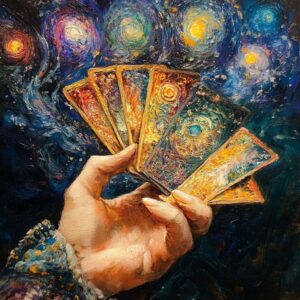
Tantalus, the son of Zeus, was granted control over Athens by the gods. The gods loved and respected him, but one day, he invited them to his palace and served them the flesh of his son, whom he had murdered beforehand. From that moment on, his entire family was cursed for generations. The curse was that the king would die at the hands of his son. In every generation, Athena would visit and whisper this curse to the king. Each king would laugh it off and continue to reign, but the curse always took effect. Atreus was the first king who chose to relinquish the throne, passing it on to his son and moving to Troy. Despite giving up the kingdom, he died from a stray arrow shot by his son Agamemnon during the Trojan War.
When Orestes was two years old, his grandfather Atreus was ruling the kingdom. One day, Athena, the goddess of justice, whispered something to Atreus, prompting him to leave the kingdom, travel to Troy, and pass the throne to his son Agamemnon. Agamemnon ruled the kingdom for five years. Helen, who was promised to Agamemnon's brother, fled to Troy to unite with her lover, Prince Paris. They were married, and an enraged Agamemnon demanded that the marriage be annulled or he would go to war. The response was war. Agamemnon rallied other Greek kingdoms, and thus a thousand ships and the finest warriors set sail for battle.
As was the custom among men, both then and now, they gathered in the evening to boast of their abilities. Agamemnon spoke of his prowess as a hunter, claiming he was a better hunter than Artemis, the goddess of the hunt. The next morning, the winds blew fiercely and the ships could not leave the harbor. They consulted the oracle, who revealed that Artemis, who was also the goddess of the winds, was angry and demanded the sacrifice of Agamemnon's daughter.
Agamemnon summoned his wife, daughter, and son, telling his wife that their daughter was to marry Achilles. When his wife arrived, their daughter was forcibly taken from her and offered as a sacrifice to Artemis. In a twist of fate similar to the story of Isaac, she was replaced at the last moment, but no one knew this, not even Iphigenia, who believed she had reached the place where the souls of the dead go.
Queen Clytemnestra and King Agamemnon had a bitter argument, and the queen threatened to kill the king. Their seven-year-old son, Orestes, overheard the argument and couldn't bear it; he retreated to his room, covering his ears and closing his eyes, disconnecting from the harsh reality.
Clytemnestra returned to the palace, and Agamemnon set sail with a thousand ships for Troy. The war lasted ten years. Confident in their victory, the Greeks fought on, and every month the king sent a letter to his queen, informing her that the war was about to end and he would return home. Each month, the queen replied, warning him not to return, as she would kill him in revenge for the sacrifice of their daughter. After 120 warnings, Agamemnon still returned home. He was received with great honor and was given a feast and a warm bath. But while he was naked and unarmed, Clytemnestra murdered him.
The queen's need for revenge partly stemmed from the fact that she never had the opportunity to confront the king. Each month, she rebuilt the confrontation in her mind, and each month, the king did not return. Over time, her anger grew until the desire to kill him and take revenge on the gods for what they had done to her consumed her. She decided to kill her son, thus erasing the lineage of the House of Atreus, which was founded by the son of Zeus who ruled in Athens.
Orestes was smuggled out by the king's loyalists and went into hiding, hoping that his father would return and restore order, but to his dismay, his father was murdered. Orestes faced a difficult dilemma: he had to kill his mother because if he didn't, she would kill him. But how could a son kill his mother? At that moment, he was unable to make a decision, so he paused, rested, and prepared to face his choice later. Time passed, and Orestes still couldn't make a decision. The law was clear: he had to kill the person who murdered his father, but whoever killed his mother would be cursed by the gods. In Delphi, the god Apollo himself appeared to help Orestes make a decision. Since the dilemma had no solution, Apollo took it upon himself to make the decision and sent Orestes to kill his mother. She had killed her husband, Orestes' father, wanted to kill him, and was destroying the kingdom—three reasons why Apollo sent Orestes to kill his mother.
The decision was made, and the stage of execution lay ahead, but it was yet to be done. At this moment, Orestes set sail for home, the journey serving as a break between the stages.
Orestes returned to the palace where his mother and her lover lived. Unsure how to enter, he received help from his sister Electra, who loved their father deeply and was angry with their mother for both killing him and not allowing her to mourn. Electra's story strengthened Orestes and removed his last doubts. Together, they planned how to enter the palace and kill their mother. But at the crucial moment, in the prayer room when his mother was alone, Orestes raised his sword but couldn't bring himself to kill her. She tried to appeal to his emotions, but to no avail. Orestes did not lower his sword and did not release her from his threat, so she called upon the Furies and promised in their name that they would pursue him until his death.
Orestes was relentlessly pursued by the Furies, but he felt that this was his penance for killing his mother. After years of suffering, during which Orestes believed he had completed his punishment, he approached Apollo for help. Apollo turned to his sister Athena, and Orestes requested justice for his actions.
Impressed by his sincerity and the harsh punishment he had imposed on himself, Athena convinced the Furies to release him and lifted the curse from his lineage. Orestes returned home, rebuilt his life, and restored his kingdom.
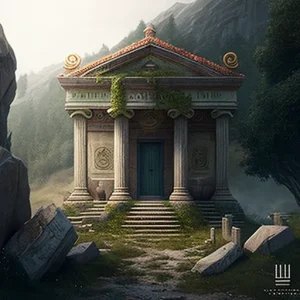
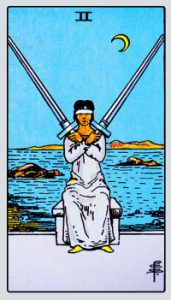
Two of Swords: Orestes witnesses a fierce argument between his mother, Queen Clytemnestra, and his father, King Agamemnon, after his father sacrificed his sister Iphigenia to the goddess Artemis. Unable to bear the conflict, Orestes disconnects by retreating to another room, closing his eyes, and covering his ears. This card represents a state of ignoring reality, whether due to an inability to cope with it or a deliberate refusal to acknowledge the existing facts of the situation.
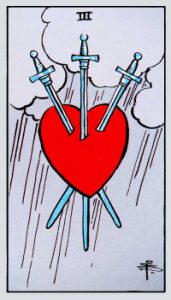
Three of Swords: Clytemnestra's revenge against Agamemnon is cold and meticulously planned. For ten years, she devises her revenge, even warning Agamemnon of what is to come. Despite numerous warnings, Agamemnon returns home, fully aware of what awaits him, yet he chooses to ignore it. This card represents situations of inevitable failure, where ignoring reality leads to the experience of failure. There is an element of self-destruction, as the outcome is not a surprise but a clear and foreseeable consequence that is willfully ignored.
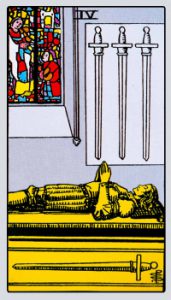
Four of Swords: There are moments in life where a decision cannot be made—any action taken will lead to disaster, whether it be the death of Orestes or the death of his mother, the queen. This card represents those situations in life where a decision cannot yet be made because the conditions are not yet ripe. The need to react, the urge to respond or act immediately, is present, but the situation calls for a pause. If the querent exercises patience, they will come to understand when and how it is right to act.
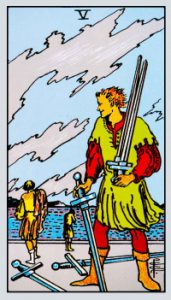
Five of Swords: Orestes faces two choices, neither of which is good, and both lead to negative outcomes. Whether he kills his mother for murdering his father or fears for his life due to her threats to kill him, he is trapped between impossible options. This card represents those situations where there is no good choice among the options, but despite everything, a choice must be made and action taken. Once a decision is made, and action is taken, clarity will come regarding what is right and wrong. Due to the difficulty of choosing between the two options, the querent may prefer to sit on the fence, remain a passive observer, and let life pass by without making a decision. This reluctance to choose leads to stagnation. The question is whether the querent will remain frozen or choose and discover what life has in store for them.
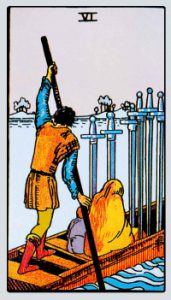
Six of Swords: Orestes received permission from Apollo to kill his mother, and he sails back to the palace where he was born and from which he fled. At this stage, he is past the decision-making and just before its execution. The journey serves as a time of respite. This card represents the space between decisions, the pause between events. It symbolizes a break or a forced vacation, a time when it is wise to step back and take a break in order to find a solution to the current situation. Sometimes, it's essential to refresh and clear the mind to gain a new perspective on the matter at hand. After a vacation, the situation itself may not change, but the renewed strength and clarity gained can help overcome obstacles and find solutions that were previously overlooked due to mental fatigue. It’s crucial for the querent to take this break, but equally important is ensuring that they don’t forget to return from it.
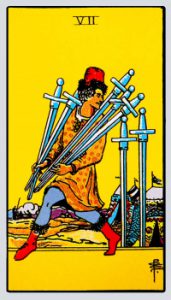
Seven of Swords: Electra and Orestes reunite after years of separation and together plan Orestes' entry into the palace and the murder of their mother. This card represents situations where cold, calculated thinking, strategic planning, and the right tactics are necessary to achieve victory. If the question is asked by a female querent, the card also highlights the significance of her relationship with her father.
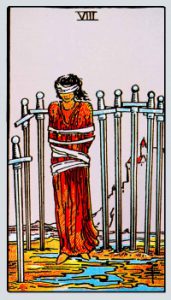
Eight of Swords: At the critical moment in the prayer room, when his mother is alone, Orestes raises his sword but cannot bring himself to kill her. She tries to appeal to his emotions, but to no avail—Orestes does not lower his sword and keeps her under threat. In response, she calls upon the Furies and vows in their name that they will pursue him until his death. This card represents life situations where one must act coldly and without emotion, even though the situation is difficult because it is both emotional and requires rational action. However, emotions bind us, preventing us from taking the necessary action.
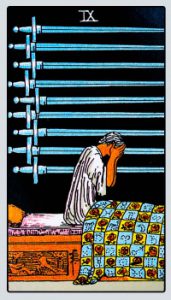
Nine of Swords: Orestes knows what he must do; he understands that he has no choice, as his mother killed his father, wants to kill him, destroy the kingdom, and defy the gods. He received Apollo's approval, with Apollo taking responsibility for the murder of the mother. Orestes' conscience torments him—the knowledge that he won’t be punished for his actions paralyzes him from acting. However, once it becomes clear that he will be punished for his deed, he kills her. Indeed, his life becomes difficult; he suffers and is pursued by the Furies. This card represents situations where the querent has justified worries, and moreover, the card emphasizes that the situation is even worse than the querent imagines. It is better to retreat, even though they may have become attached to an idea or thought, as failure is assured.
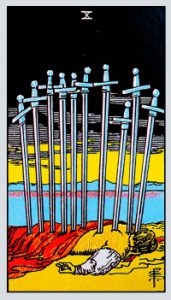
Ten of Swords: Orestes is relentlessly pursued by the Furies, but he feels that this is his penance for murdering his mother. After years of suffering, during which Orestes believes he has completed his punishment, he approaches Apollo and asks for his help. Apollo turns to his sister Athena, and Orestes requests justice for his actions. Athena, impressed by his sincerity and the harsh punishment he imposed on himself, convinces the Furies to release him and lifts the curse from his lineage. Orestes returns home to rebuild his life and kingdom. This card represents the stage in life where the querent finds themselves after enduring a difficult lesson—a stage where life begins anew. The reader should ensure that the querent has indeed gone through a challenging lesson and that the card is not serving as a warning that the querent is ignoring the lesson and the difficulties. If ignored, the lesson will be learned the hard way. The card reminds everyone that growth comes from hardships, and spiritual development follows after learning the lesson.

Orit Raphael, Tarot Reader for Personal Guidance, Insights, and Messages